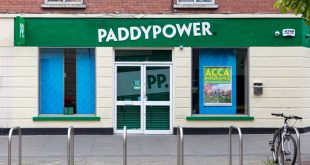 Licensing expert David Clifton, of consultants Clifton Davies, has analysed what the political parties have to say about the betting shop’s main breadwinner and doesn’t like what he sees.
Licensing expert David Clifton, of consultants Clifton Davies, has analysed what the political parties have to say about the betting shop’s main breadwinner and doesn’t like what he sees.
Fixed Odds Betting Terminals have rarely been out of the news since they were first introduced into Britain’s betting shops. That is now thirteen years ago. Just a year after that, the then Government was expressing “concern” at the “increasing installation” of FOBTs in licensed betting offices and that this “risk[ed] seriously increasing problem gambling”
With 34,436 such machines in operation at the last count (compared with an estimated 20,000 ten years ago), FOBTs remain very much in the news even now with critics of the B2 gaming machines – as they are classified – continuing to maintain that they have a causal role in problem gambling. That is refuted by the Association of British Bookmakers and in June 2013 even the Responsible Gambling Strategy Board described “the correlations and associations” between gaming machines and gambling-related harm as being “poorly understood”.
That is not to say that the ABB has not recognised that the betting industry needed to respond to increasing public concerns that insufficient player protections existed in relation to use of FOBTs. Its “Code for responsible gambling and player protection in licensed betting offices” came into operation in March 2014, including:
- suspensions in play if voluntary time and money limits are reached,
- mandatory alerts that tell players when they have been playing for 30 minutes or when £250 has been spent,
- training staff to recognise the opportunity to interact with customers repeatedly loading money, and
- no longer siting cash machines that can be used from within a betting shop.
The ABB introduced additional player protection measures in November 2014, requiring gaming machine customers to choose whether they wished to set a time and/or money limit.
Members of the Senet Group (ie Corals, Ladbrokes, Paddy Power and William Hill) have committed to adhere to the ABB’s code of practice and have also pledged not to advertise gaming machines in betting shop windows.
Notwithstanding these developments, in November 2014, Newham Council lodged a proposal (supported by 92 other councils) with the Department for Communities and Local Government, demanding that the Government should reduce the maximum stake on B2 machines to £2. Under the terms of the Sustainable Communities Act 2007, the Government has a duty to make a decision on this proposal by November 2015.
Now, more recently, the Gaming Machine (Circumstances of Use) (Amendment) Regulations 2015 has come into force on 6 April 2015, amending the previously applicable 2007 Regulations in order to prevent individuals from paying more than £50 for a charge for use of a category B2 gaming machine (other than where the machine is located in a casino) unless each payment made by that individual in respect of the use of the machine complies with specific conditions relating to:
- customer identification so that after a customer has identified themselves to an operator, payments made in respect of a stake of more than £50 can be made,
- supervision of a customer making such payments arising from a face to face interaction between the customer and staff acting on behalf of the operating licence holder and
- allowing a customer to stake in excess of £50 by applying a money prize won on the FOBT which satisfied the above-mentioned conditions; each such prize must have been accumulated through playing the machine and be held in the credit meter of that machine.
Currently, with the General Election looming as I write this article:
- Clive Efford, Shadow Minister for Sport, has said that a Labour Government will explore ways in which councils might retrospectively reduce the numbers of FOBT machines per betting shop “where they have identified that these machines are causing harm”,
- a Liberal Democrat spokesperson has said that councils will be given the power to limit the number of betting shops in their area and the party’s manifesto states that the maximum stakes for FOBTs will be substantially reduced, and
- UKIP proposes to reduce the maximum stake on FOBTs from £100 to £2 (the same level of stake advocated by the Campaign for Fairer Gambling) maintaining that this will “tackle problem gambling and anti-social behaviour”.
 For its part, after surprising the industry with a hike in the duty payable on FOBT profits from 20% to 25% in its 2014 Budget announcement on the ground that such machines “are highly lucrative”, the Coalition Government made it clear in December last year that it would consider the findings of research into gaming machines in betting shops published by the Responsible Gambling Trust before making any decision on the future of FOBTs.
For its part, after surprising the industry with a hike in the duty payable on FOBT profits from 20% to 25% in its 2014 Budget announcement on the ground that such machines “are highly lucrative”, the Coalition Government made it clear in December last year that it would consider the findings of research into gaming machines in betting shops published by the Responsible Gambling Trust before making any decision on the future of FOBTs.
Based on the above, it would not be surprising if betting shop operators and workers will lean towards the Conservatives, bearing in mind that the ABB claims that a reduced £2 maximum stake on FOBTs would put 90% of betting shops and nearly 4,000 jobs at risk and result in the Treasury losing nearly £650 million in tax.
However, come what may, this particular story will continue to run because, following calls that have been made over a number of years to give local authorities greater control over betting shop proliferation in their areas, with particular concern about growing numbers of FOBTs:
- one of the changes introduced by the Town and Country Planning (Use Classes) (Amendment) (England) Order 2015, that took effect on 15 April 2015, was the reclassification of betting shops so that they do not now fall within any use class and are considered “sui generis”, meaning that a specific planning application will be required for a proposed betting shop use, unless the premises in question currently trade as a betting shop or held a betting premises licence prior to 15 April 2015,
- on 18 March 2015, the National Assembly for Wales passed a motion (with no dissenting votes) calling on the Welsh Government to “engage with the UK Government to discuss the devolution of greater powers over the licensing of gaming machines”,
- north of the border, recently published draft legislation on increased powers for the Scottish Parliament included a clause enabling Scottish Ministers to vary (on an application for a new licence) the number of gaming machines in a betting shop on which it is possible to stake more than £10 in a single play and
- as previously reported in SBC News, in Northern Ireland where different gambling legislation applies than in the rest of the UK, the Department of Social Development is reviewing currently applicable gambling legislation with a particular focus on the number of FOBTs operating in the country.
Every indication is that the FOBT tide will continue to turn against betting shop operators across the UK.









